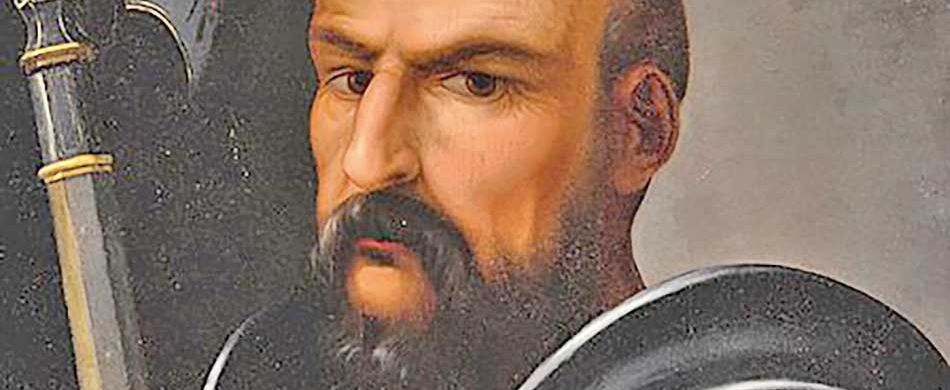DEAR friend, the mainstream media is sadly feeding us a daily diet of terrible images of death and destruction. These are images which perhaps many of us were not used to seeing, but which have unfortunately always been common in many countries.
It’s sad to say, but human beings have always been war-like and often quite cruel. This is proven by the destructive potential shown by some people when they are given power. Examples of wickedness, brutality and cruelty can be found in practically every page of history.
I am sure that you are familiar with the names of Attila, Genghis Khan, Stalin, Hitler, Mao Zedong… but maybe you have never heard of Ezzelino da Romano, the tyrant whom St. Anthony had to face almost 800 years ago.
Ezzelino was such a cruel man that Dante in the Divine Comedy places him in hell, in the circle reserved for those who were violent against their neighbors and are condemned to spend eternity in a river of boiling blood and fire.
This tyrant had practically conquered the whole of north-eastern Italy, and he dominated everyone through violence, cruelty and torture. It is said that, tired of beggars in Padua, he spread a rumor that he would give them all food and clothes for Christmas. Once they had all entered his palace, however, he closed the doors behind them and had them all killed. This may be a legend, but it gives us an idea of the terror the tyrant sowed around himself.
It is therefore not surprising that when Ezzelino’s army was besieging Padua, its citizens turned to Brother Anthony, the only person who had always defended them from the abuses of the powerful. It was 1231 and Anthony was so ill that he would die only a few months later. Despite having great difficulty breathing, he immediately set out for Ezzelino’s palace in Verona, some 43 miles away, in order to restore peace between the tyrant and the people of Padua.
Ezzelino, pleased rather than annoyed by the friar’s reproaches, had an expression of defiance in his eyes, defiance to truth and justice. Anthony, however, did not let himself be dissuaded from his mission: to bring peace to the city of Padua. The mission was unfortunately unsuccessful. However, it is said that, having heard of St. Anthony’s death, Ezzelino, perhaps showing some remorse, freed some Paduan prisoners. In any case, a few years later Ezzelino was defeated and Padua finally obtained peace.
Almost eight hundred years have passed. The tyrant Ezzelino, so hated and feared in his time, is now only a marginal figure in history; Saint Anthony, on the other hand, is known throughout the world and loved by millions of people.
But what did Anthony mean by peace? Was it absence of war? Or perhaps it was the absence of conflict between nation and nation; between people of different ideas; difficulties among relatives? No. For Antony peace meant much more: it was the peace given by the Lord. It was a sense of universal completeness, a condition in which nothing is lacking. When one possesses the Lord’s peace, one is in perfect communion with God.
We too, like St. Anthony, have received the gift of true peace from the Lord. Remember, “Peace I leave with you, my peace I give you” in the Gospel of St. John? But are we cultivating this precious gift or is it like a small seed that has no chance of growing?
Today St. Anthony exhorts us to rediscover the true peace that the Lord has planted in our hearts. It is certainly not achieved through weapons or by cultivating hatred, but through prayer, tenderness, forgiveness, dialogue and love for all kinds of neighbors. This is how we Christians can bring God’s peace to the world. I know it is difficult, but it is not impossible... Peace and all good!




